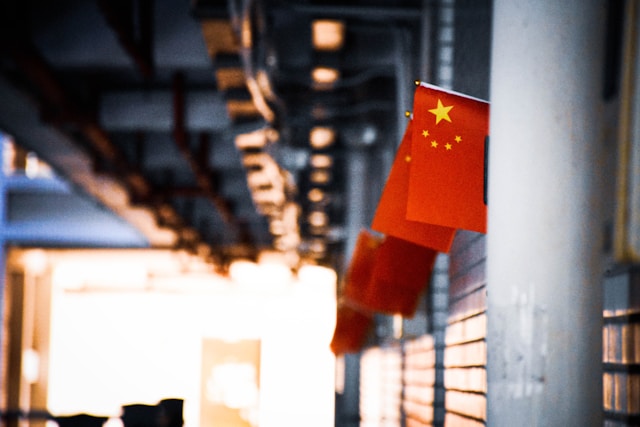
The Supreme People’s Court (“SPC”) has been reshaping the Chinese court system since the judicial reform in 2014. I try to find out the answer from all kinds of dazzling reform measures to the core question: what does the SPC want?
I think the SPC wants local judges to hear cases independently, not to be influenced by local courts and local authorities, while being supervised by a more perfect mechanism.
I. What is the goal of the SPC’s judicial reform?
At the very beginning of this judicial reform, the SPC had stated in various official statements that the goal of judicial reform was to eliminate the tendency of “localization” (地方化) and “administration” (行政化) of local courts, so as to ensure the independence of judicial power. [1] These two goals are called “de-localization” (去地方化) and “de-administration” (去行政化). The former goal is to weaken the influence of local authorities on local courts, while the latter one is to weaken the influence of the internal leadership of local courts on the judges. The purpose of both is to prevent judges from being influenced by improper interference during the case trial. [2]
In my opinion, “de-localization” and “de-administration” are actually the same thing, both of which are to remove the influence of local authorities on local courts. Because when some local authorities try to interfere with the judges, they usually persuade the leadership of local courts to do so. “De-localization” and “de-administration” cut off the connection between local authorities and judges from the outside and inside respectively.
In other words, the goal of Chinese courts’ judicial reform is actually “de-localization”. The SPC also specifically stressed that, since justice belonged to the central authority, local courts should not be affected by local authorities. This also verifies my point of view.
Therefore, the goal of Chinese courts’ judicial reform should be described as “to strengthen the SPC’s control over local courts and weaken the influence of local authorities on local courts, so as to achieve the central authority’s control over all courts nationwide to some extent”.
II. Why should local courts be ‘de-localized’?
The localization of court refers to that local courts are manipulated by local powers as a tool to deal with local affairs and serve local interests. Some local governments choose to harm the interests of the State and other places for the sake of their own interests, and make the court become a tool to do so. [3]
The SPC has been criticizing the localization of courts since the 1980s, [4]believing that it has caused many problems, such as destroying the unity of the application of law, hindering the formation of a national market, and weakening the public’s trust in the courts. [5]
There are several reasons why local courts are localized. First of all, the presidents and judges of local courts are elected or appointed by local people’s congresses, and their budgets also come from local governments. In addition, the SPC and high people’s courts at the provincial level are usually unable to supervise the cases heard by local courts, because the final judgments of most cases are rendered by local intermediate people’s courts, in which the SPC and high people’s courts cannot intervene.
III. How does the judicial reform de-localize local courts
The SPC has formulated a targeted reform task in this judicial reform, in order to make the local court decouple from the local.
1. Strengthening control over local courts: de-localization
For the start, the SPC is transferring the management of resources (human resources, assets, budget) of the local court from the local government at the same level where the court is located to the provincial court. It seems that the SPC’s ultimate goal is to manage the resources of all local courts (including provincial courts) nationwide, so as to separate the court system from local authorities completely. [6]
In addition, the SPC is in the process of establishing cross-region courts and specialized courts, which will gather the jurisdiction over some cases from local courts to specific courts that are relatively independent of local powers. It will be difficult for local authorities to influence these courts.
2. Weakening the control of local courts over local judges: de-administration
The SPC is practicing the judicial accountability system, that is, “he who hears the case shall make the judgment and be liable therefor”. See CJO’s previous post for more information.
To learn more about “judicial accountability system”, please read Why Is the Judicial Accountability System the Cornerstone of China’s Judicial System Reform?
Specifically, in the past, after a judge drafts a judgment, it needs to be reviewed and approved by the court’s leadership (i.e. the court president and the director of a division), and the final judgment should be made according to the opinions of the leadership. Now, SPC has abolished this power of the court leadership and strictly prohibited local authorities and the court leadership from interfering in the work of judges. [7]This allows judges to make relatively independent decisions, thus weakening the control of local courts over judges. Then, SPC looks for a new alternative mechanism to supervise judges, and ensures that such mechanism will no longer lead to a new round of localization.
To learn more about the judgment approval system, you may visit Chinese Judges Shall Undergo Review and Approval Before Rendering Judgments.
IV. Seeking alternative supervision mechanisms
In the process of de-localization and de-administration by the SPC, judges have gained more independence than before. However, this also leads to a new question: if judges commit malpractice in case trial, and if judges’ work quality lowers, what should be done?
In the past, court leadership could supervise the judges by reviewing the judgment. However, the SPC has to find an alternative mechanism after revoking the court leadership’s power in this regard.
The first adopted measure is open justice, that is, to disclose the information of court proceedings to the parties, and the judgment to the public. The SPC hopes that the parties and the public can supervise the judges, and this practice has really played a role now. Nevertheless, this is a kind of ex post facto supervision, which means that the public can only find errors in the judgment after it being made, so it is difficult to correct such error.
To learn more about Chinese Court Judgments Online, you may visit You Can View Almost All the Chinese Court Judgments Online for Free.
Therefore, SPC is looking for an ex-ante supervision mechanism. At present, the SPC’s solution is “similar judgments for similar cases”(类案同判). That is to say, the SPC requires that the judgment to be made must be consistent with the judgment standards and the application of law of similar cases of the court where the judge is rendered and courts at a higher level. [8]
To learn more about “similar judgments for similar cases”, you may visit Similar Judgments for Similar Cases: Forces Driving Chinese Courts to Promote AI.
In other words, before this judicial reform, the court’s practice was to review and approve the draft judgment according to the personal judgment of the court’s leadership before the judgment was made. Now the SPC hopes to review the draft judgment based on similar cases.
The SPC further hopes that the AI system, rather than human beings, will judge whether the draft judgment meets the standards set by similar cases, so as to prevent the improper intervention of the local court’s leadership.
V. Conclusion
To sum up, I think the logic of this judicial reform is to let the local courts and local judges be separated from the local authorities and subject to the central authority; local judges are no longer improperly interfered by the leadership of local courts; the SPC establishes a new substitute supervision mechanism.
[1] 孟建柱:“社会上反映比较多的是司法机关的人财物受制于地方,司法活动易受地方保护主义的干扰,影响法制统一,损害司法权威。为此……主要(措施)有两项内容:一是推动省以下地方法院、检察院人财物统一管理……二是探索与行政区划适当分离的司法管辖制度。”孟建柱. 深化司法体制改革. 人民日报,2013-11-25(06).
[2] 如2015年中共中央办公厅发布了《领导干部干预司法活动、插手具体案件处理的记录、通报和责任追究规定》,以约束地方政权对法院的干涉;2015年中国共产党负责司法领域事务的中央政法委员会也发布了《司法机关内部人员过问案件的记录和责任追究规定》,以约束法院内部对法官的干涉。
[3] 蒋惠岭.司法权力地方化之利弊与改革[J].人民司法,1998(02):29.
[4] SPC院长郑天翔:《SPC工作报告——1986年4月1日在第七届全国人民代表大会第一次会议上》,http://www.gov.cn/test/2008-04/10/content_941269.htm
[5] 蒋惠岭.司法权力地方化之利弊与改革[J].人民司法,1998(02):29.
[6] “应该本着循序渐进的原则,逐步改革司法管理体制,先将省以下地方人民法院、人民检察院人财物由省一级统一管理。”孟建柱,《深化司法体制改革》,《 人民日报 》2013年11月25日。
[7] 参见《人民法院落实〈领导干部干预司法活动、插手具体案件处理的记录、通报和责任追究规定〉的实施办法》《人民法院落实〈司法机关内部人员过问案件的记录和责任追究规定〉的实施办法》
[8] 参见《最高人民法院关于完善人民法院司法责任制的若干意见》、《最高人民法院关于落实司法责任制完善审判监督管理机制的意见(试行)》
Cover Photo by Марьян Блан | @marjanblan(https://unsplash.com/@marjan_blan) on Unsplash
Contributors: Guodong Du 杜国栋








